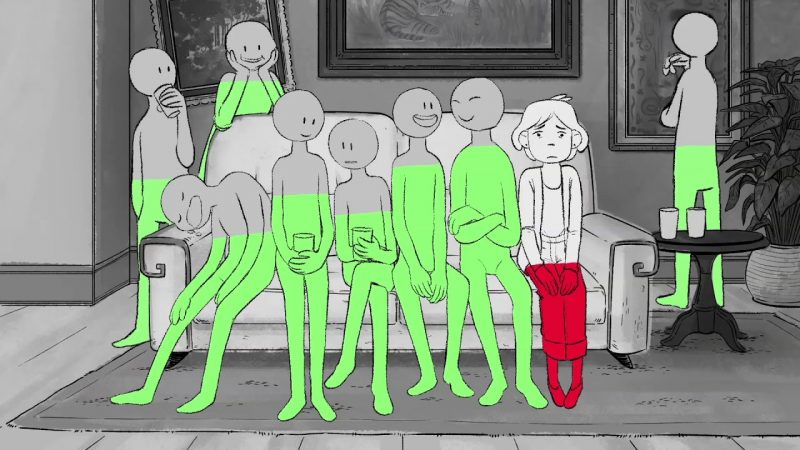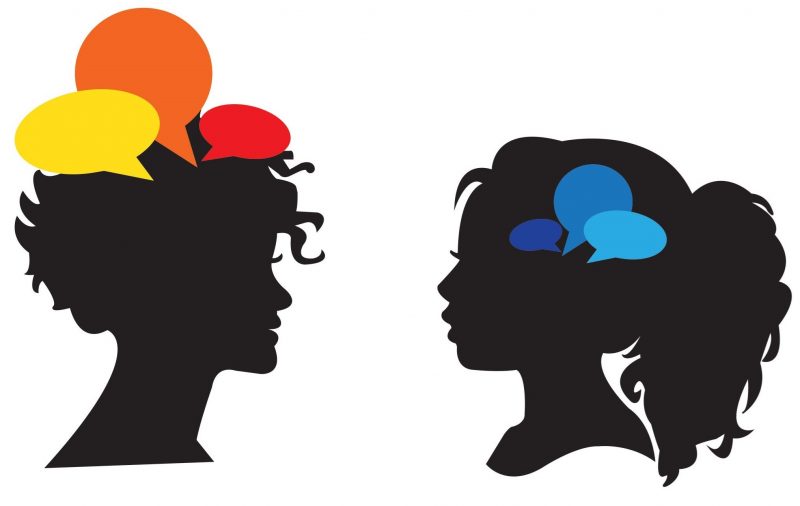The concepts of "introvert" and "extrovert" are psychological terms that have firmly entered the consciousness of modern society. Everyone knows that an introvert does not direct energy to the outside world, like an extrovert, but to itself. Both types of personality have their advantages and disadvantages. Who was the creator of this original theory, and what benefits it can bring - read on.
Material Content:
- 1 The history of the appearance of the term "introvert" and "extrovert"
- 2 The classification of personality types proposed by Carl Gustav Jung
- 3 Characteristics of extroverts and introverts
- 4 What are the differences between psychotypes
- 5 Stress response for personality types under consideration
- 6 How to determine who you are - an introvert or an extrovert
- 7 Is it possible to change your personality type
The history of the appearance of the term "introvert" and "extrovert"
This classification was invented by a psychotherapist from Switzerland C. Jung. He was a psychiatrist and teacher, at the beginning of the twentieth century he conducted joint research with Z. Freud, and played a significant role in the development of psychoanalysts. In 1914, the scientist left the accepted technique of psychoanalysis in his work with patients and left the International Psychoanalytic Association.
Jung developed an author’s theory called “analytical psychology”, which had a huge impact on the worldview of all mankind.
In 1921, the work of C. Jung "Psychological types" was published. A typology of personalities was first developed in it, the purpose of which was their classification into extroverts and their opposites - introverts. Work on the study of extraversion-introversion was further continued by a psychologist from Great Britain Hans Jürgen Eisenck.
The classification of personality types proposed by Carl Gustav Jung
Jung's theory initially stipulated that the proposed psychotypes are extreme values of the scale. Most people find themselves somewhere in the middle - they are ambivers.Jung wrote that a “pure” extrovert or introvert would sooner or later have been received by a psychiatrist. Therefore, do not rush to attribute yourself to one of these types.
Carl Gustav Jung proposed classifying people according to their “psychological attitude” and according to their predominant function.
Combining these two concepts, he identified 8 basic personality types:
- extrovert mental;
- extravert feeling;
- extravert sensory;
- extravert intuitive;
- introverted mental;
- introverted sentiment;
- introverted senser;
- introvert intuitive.
General types of installation, which differ from each other in the direction of interests in relation to the object, he called extroversion and introversion.
Introverts, according to Jung, seek to escape from the power of the object into their world of illusions. Extroverts, on the contrary, show interest in the object, have a positive attitude towards it, and are guided by it in their subjective sensations.
Characteristics of extroverts and introverts
Some people think that introverts are strange, not very good people, or even maniacs. In fact, introverts do not give up in difficult situations, sometimes smarter and more reliable than many extroverts. The latter also have many positive qualities. Defining the psychological type of attitude as good or bad is wrong. It’s like comparing fire and water - you can’t say what is better or worse, they are completely different.
Extrovert Feature:
- the most important decisions are not determined by personal opinion, but by external circumstances;
- the inner world of a person is subject to external requirements;
- consciousness is directed to objective incidents;
- laws and norms of the close environment are the basis of activity.
Introvert Feature:
- important decisions are the result of a subjective attitude;
- the inner world is protected from external influences by personal opinion;
- consciousness explores the world through the prism of subjective assessment;
- the basis of activity is personal aspirations.
An important role, according to Jung, is played by the unconscious mindset that every person has. It compensates for overly pronounced manifestations of extraversion and introversion, creating barriers that are insurmountable without deep analysis.
What are the differences between psychotypes
Jung's classification describes the way in which a person replenishes his energy supply. Introverts do this out of loneliness, extroverts - out of communication with surrounding people. The first thing you need to know is that the types of personality being discussed are completely opposite.
Extraversion - introversion, what are the differences:
- Extroverts choose noisy companies, and introverts appreciate loneliness.
- Extroverts love performing in public, they strive to show themselves, introverts prefer to retire with books or a computer.
- An extrovert can work as an organizer, a host. Introverts are scientists and researchers, and the most creative profession for them is a writer.
- The introvert will never celebrate his birthday noisily, and the extrovert will try to invite all his friends to the party.
This difference is obvious to all people who are not even familiar with psychology. Everyone is familiar with closed people who are hard to understand (introverts) and open - funny or scandalous, but understandable to others in their emotions and feelings (extroverts). Such a fundamental opposite according to Jung is noticeable in every person with a formed personality, regardless of social status and education.
Stress response for personality types under consideration
The response to stress largely depends on the type of personality setting.
- The extrovert will seek a way out of the difficult situation in the outside world. He will turn to friends, relatives, doctors, fortunetellers, psychics, to any source that promises help.
- The introvert will try to find a way out through philosophical reflection or appeal to God.
It all depends on the subjective awareness of reality - as the providence of God or the work of evolution.
How to determine who you are - an introvert or an extrovert
To determine what type of installation prevails in a person at the moment, many tests have been compiled. They are designed to help choose a future profession or solve a conflict situation, find your own style and succeed. It is always interesting to learn something new about yourself.
Try applying 10 sayings to yourself, and make sure you are an introvert:
- Before you give your opinion, you always think.
- Love loneliness, sometimes you need to retire even from your own family, otherwise you start to get sick.
- Do not like unnecessary conversations.
- You have few friends, but you really value them.
- Do not like to talk on the phone often.
- You notice the details, the shades of colors are important to you.
- Carefully choose when buying things.
- They often try to push you to the end of the line, to deprive you of bonuses and other benefits, just because you are not loudly resisting.
- It annoys you when distracted from business, earphones save.
- You do not like to argue, although you always have your own opinion.
If almost everything written is not about you, you can confidently say that you are an extrovert.
Is it possible to change your personality type
Knowledge of a person’s psychotype is necessary for a specialist for successful interaction and effective psychological assistance. Such help is required in those cases when the normal interaction of the individual with the world is violated, destruction, distortion occur.
The type of installation is not consciously chosen; it owes its existence to an instinctive basis. The opposite of types, as a general psychological phenomenon, has its own biological prerequisites. Introverts and extroverts are born; under normal developmental conditions, a congenital type of attitude always prevails in a person. Everything else can be called a neurosis, when a certain type of behavior is imposed from the outside and distorts the true meaning of the personality.
You can deliberately change the type of personality, but a truly comfortable person will be able to feel, realizing their true desires and needs.
Only by "finding oneself" can everyone become happy. Carl Jung pointed out that the deliberate conversion of one type to another most often causes great harm to health and ultimately leads to depletion of the body.



















